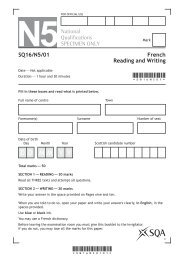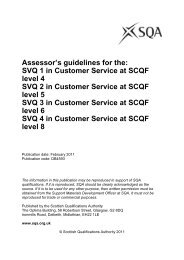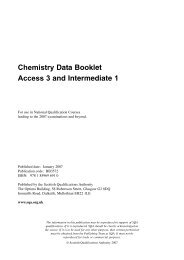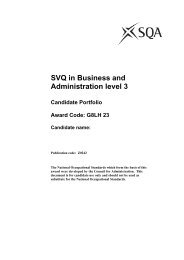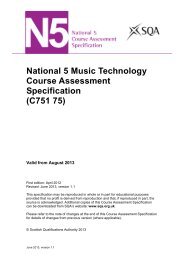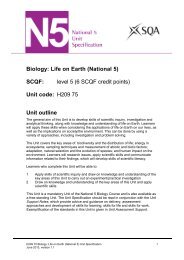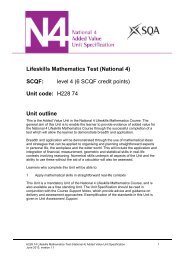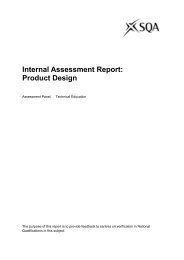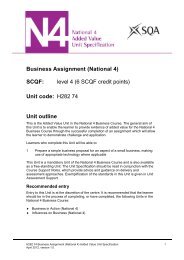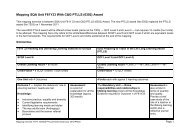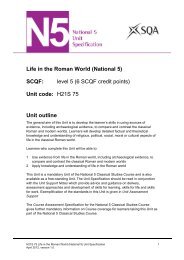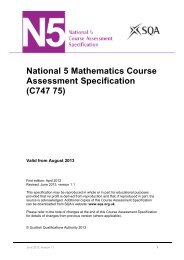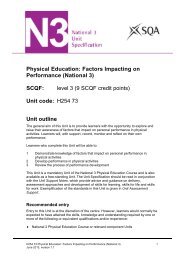National 3 Drama Course Support Notes - Scottish Qualifications ...
National 3 Drama Course Support Notes - Scottish Qualifications ...
National 3 Drama Course Support Notes - Scottish Qualifications ...
You also want an ePaper? Increase the reach of your titles
YUMPU automatically turns print PDFs into web optimized ePapers that Google loves.
Gaining awareness of basic production skills<br />
Both Units will involve learners using production skills, although there may be<br />
more opportunities for this in the <strong>Drama</strong>: Production Skills Unit.<br />
In the <strong>Drama</strong>: Production Skills Unit, learners could have the opportunity to<br />
explore and use production skills, before selecting an area to develop for<br />
presentation.<br />
Learners may choose from different production areas, such as lighting, sound,<br />
costume, props and make-up.<br />
Teachers/lecturers could use a range of approaches, such as internet<br />
research, recorded tutorials, demonstrations and practical workshops. This<br />
could encourage learners to experiment with staging, time periods, locations<br />
and characterisation to allow generation of ideas for their chosen role.<br />
Learners could record their evidence in a variety of formats in diaries/log<br />
Books and folios. These may include planning sheets, cue sheets, drawings,<br />
photographs, charts and lists.<br />
Using basic drama and production skills when presenting<br />
Learners will be required to portray character and demonstrate their ability to<br />
use production skills across the <strong>Course</strong>.<br />
In preparing learners, the teacher/lecturer should build in opportunities for<br />
learners to perform their drama/character in order to receive feedback. This<br />
will allow learners to develop their characterisation skills and refine use of<br />
drama form and structure.<br />
Activities may include devising and/or creating lighting effects, using sound,<br />
and/or, selecting props and/or adapting pieces of costume, and using stage<br />
make-up.<br />
An informal small-scale performance will be required to an appropriate<br />
selected audience (this could be an invited audience) for the performance.<br />
Using reflective skills<br />
Learners could gain confidence by expressing their ideas either back to the<br />
class or in small group discussion. This could also help learners to structure<br />
and sequence their thinking.<br />
During this process, teachers/lecturers could use open ended questioning to<br />
prompt and guide discussion and to confirm the learners’ understanding of<br />
drama. This approach could also be used to help learners self-reflect on their<br />
own creative work and ideas.<br />
Constructive feedback could be provided by the teacher/lecturer to help<br />
learners feel valued which could help develop learners’ skills and enhance<br />
their work.<br />
<strong>Course</strong> <strong>Support</strong> <strong>Notes</strong> for <strong>National</strong> 3 <strong>Drama</strong> 5



